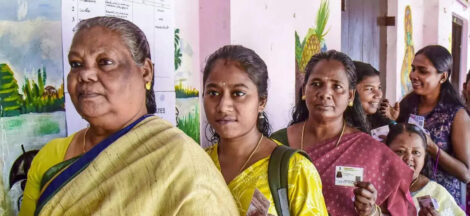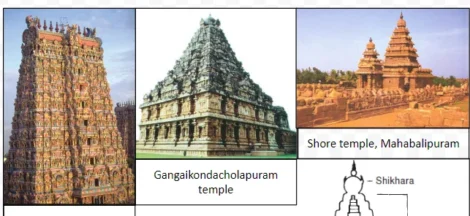By Amritananda Chakravorty
“It is directed under Article 142 that the existing data which has been collected shall not be destroyed for a period of one year. During this period, the data shall not be used for any purpose whatsoever. At the end of one year, if no fresh legislation has been enacted by the Union government in conformity with the principles which have been enunciated in this judgment, the data shall be destroyed.”
With these words, Justice D.Y. Chandrachud concluded his judgment, while writing a seminal dissent in the history of India’s constitutional jurisprudence in striking down the Aadhaar (Targeted Delivery of Financial and Other Subsidies, Benefits and Services) Act, 2016 (‘Aadhaar Act’). On 26th September, the Supreme Court in Justice K.S. Puttaswamy & Ors. vs Union of India & Anr. [Writ Petition (Civil) No. 492 of 2012], by majority judgment authored by Justice A.K. Sikri for himself, and on behalf of Chief Justice Dipak Mishra, and Justice A.M. Khanwilkar, upheld the validity of Aadhaar Act, its passage in Parliament as a money bill, and Section 139AA, Income Tax Act, 1961, which provided for mandatory linking of Aadhaar with PAN for filing of income tax returns. Though the Court struck down many provisions of the Act, particularly Section 57 that sought to give access to private companies to Aadhaar for ‘any’ purpose, the Aadhaar Act, in its core was upheld, along with Section 139AA, IT Act. However, this piece is not an analysis of the majority opinion, but seeks to locate J. Chandrachud’s landmark dissent in the larger context of judicial ‘dissents’ in India.
In the famous right to privacy judgment (with the same cause title) last year, Justice Rohinton Nariman had coined the phrase ‘three great dissents’, which mentioned the dissents of Justice Fazl Ali in A.K. Gopalan vs. State of Madras (1950), who had first talked about the inter-relationship between fundamental rights in Articles 19, 20, 21 and 22; Justice J. Subba Rao in Kharak Singh vs. State of Punjab (1964), who upheld the fundamental right to privacy; and the most famous dissent till date, that is of Justice H.R. Khanna in A.D.M. Jabalpur vs. Shivakant Shukla (1976), who struck down the Presidential order suspending the fundamental right of any person to approach the Courts challenging preventive detention. To this illustrious line, one can now add J. Chandrachud’s dissent in the Aadhaar case.
According to Charles Evans Hughes, former Chief Justice of the United States Supreme Court, “a dissent in a court of last resort is an appeal to the brooding spirit of the law, to the intelligence of a future day, when a later decision may possibly correct the error into which the dissenting judge believes the court to have been betrayed”. These words are no truer than in each of the three dissents that J. Nariman mentioned, wherein each of them became part of the majority jurisprudence, years and decades later, thereby making lawyers, jurists and even general public realise the actual significance of judicial dissents in constitutional cases of wide-ranging implications.
In a critical empirical study on the judicial dissents in India, Dr. Yogesh Singh, legal scholar, notes that dissent functions as an intra-organ control within the judicial institution. He further notes that while dissents used to be a norm in the 1950s and 1960s, when more larger benches would decide cases (bench of five or more), they declined from 1970s onwards, especially in the last two decades, owing to the predominance of smaller benches, and particularly, in the benches presided by the Chief Justice of India. In many years, not a single dissent was recorded in the CJI’s benches. This decline in judicial dissents also symbolises the decline in judicial and judgment scholarship, wherein many recent judgments on important constitutional matters are criticised for lack of intellectual vigour and depth, as well as for lack of legal clarity.
It is in this context that J. Chandrachud’s dissent in Aadhaar assumes bigger significance. Another legal scholar, Gautam Bhatia, too notes that “the majority judges ruled to preserve, entrench, and even expand State power against the individual, while the dissenting opinions sought to constrain what the State could do to the individual and to her freedom. To the judges who wrote those dissents, it must have been a lonely enterprise, disagreeing with their colleagues on the bench; and it must have carried more than a hint of futility, to write for an imagined future audience which might never exist. None of the three judges lived to see their dissents resurrected, accepted, and even celebrated.” It is a pity when one knows that the minority judgment is the correct one, and has no choice, but to have faith in the institutional robustness of the Supreme Court to correct its own course in future, as evident from the recent Section 377 decision.
In the present case, J. Chandrachud held that the passage of the Aadhaar Bill as a ‘money bill’, i.e., not requiring the approval of Rajya Sabha, under Article 110 of the Constitution was a ‘fraud on the Constitution’, and the ‘debasement of a constitutional institution’. He then struck down the Aadhaar Act for failing to meet the necessary requirements to have been certified as a money bill. In terms of denying benefits to people, owing to authentication failures, J. Chandrachud categorically held that “dignity and the rights of individuals cannot be made dependent on the algorithms and probabilities. Constitutional guarantees cannot be subject to the vicissitudes of technology. Denial of benefits arising out of any social security scheme which promotes socio-economic rights of citizens is violative of human dignity and impermissible under our constitutional scheme”. Since Aadhaar Act was struck down, he then accordingly struck down Section 139AA, IT Act to be unconstitutional.
Obviously, much would be written both on the majority judgment, and its follies, as well as on the minority decision in the Aadhaar case, but J. Chandrachud’s dissent is particularly critical, in the current political context of a subdued judiciary, an all-powerful executive behemoth, and a parliament, almost made redundant, by the said behemoth. Despite waxing eloquent about ‘constitutional morality’, and the ‘transformative power of the constitution’ in other judgments, it speaks volumes that Chief Justice Mishra chose not a write an opinion in one of the biggest constitutional cases in the history of the Supreme Court of India.
One is also not oblivious that it was the same Justice Chandrachud who ordered NIA investigation in Hadiya’s case in August, 2017, thereby bypassing all claims of her autonomy and dignity, and dismissed a plea seeking an independent investigation into Judge Loya’s death in April, 2018. At the same time, one cannot, but appreciate both the context and the content of J. Chandrachud’s dissent in the Aadhaar case, and hopes that the dissent becomes the majority opinion of the Supreme Court soon, may be in the next Chief Justice Ranjan Gogoi’s tenure. As J. Chandrachud himself said in the context of the arrest of five human rights activists last month, ‘dissent is the safety valve in a democracy’. Similarly, dissent is the safety valve in the judicial decision-making and independence. (IPA Service)
The Picture is Taken from Internet.
The post Justice Chandrachud’s Dissent Note On Aadhaar Act Has Big Significance appeared first on Newspack by India Press Agency.



